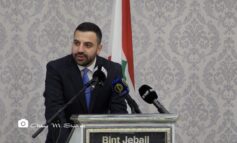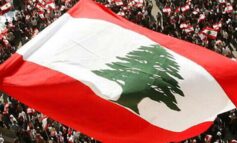As Bush tours Mideast, was this a message?
BEIRUT — An explosion targeted a U.S. Embassy vehicle Tuesday in northern Beirut, killing four Lebanese and injuring a local embassy employee, American and Lebanese officials said. In Washington, State Department spokesman Sean McCormack said two embassy employees — including the driver — were in the vehicle damaged in the blast, which could be heard across the Lebanese capital and sent gray smoke billowing near the Mediterranean coast.

The driver was slightly wounded and the other staffer is fine, McCormack told reporters. He said no American diplomats or American citizens were in the car. “My understanding is there were four Beirut residents who do not work for the embassy who were killed in the blast,” he said. “Our thoughts and prayers go out to their families. A senior U.S. official, who was not authorized to release the information and spoke condition of anonymity, said no Americans injured or killed. A Lebanese security official, speaking on condition of anonymity in line with military rules, told The Associated Press the explosion targeted the U.S. vehicle and was in the predominantly Christian Dora-Karantina neighborhood. McCormack could not offer specifics about the blast or whether the vehicle had been targeted, but said it had been hit directly “by the explosion itself.” He said agents from the State Department’s Bureau of Diplomatic Security would be working with Lebanese authorities to investigate the blast and that the U.S. Embassy in Beirut was reviewing its security. “We are going to take a look at what implications, if any, there are for our security posture in Beirut,” McCormack said. Television footage showed several damaged cars, including an SUV with tinted windows. Plainclothes security agents were seen removing an automatic rifle from the SUV. In the past three years, a series of explosions in Lebanon have targeted mainly anti-Syrian politicians and journalists. The last car bombing on Dec. 12 in Beirut’s suburb of Baabda killed Lebanese army Maj. Gen. Francois Hajj and two other people.





Leave a Reply